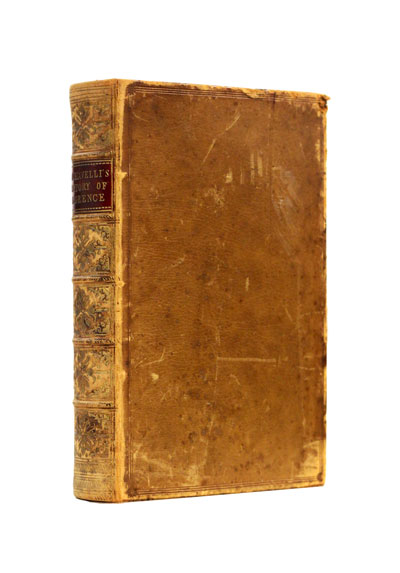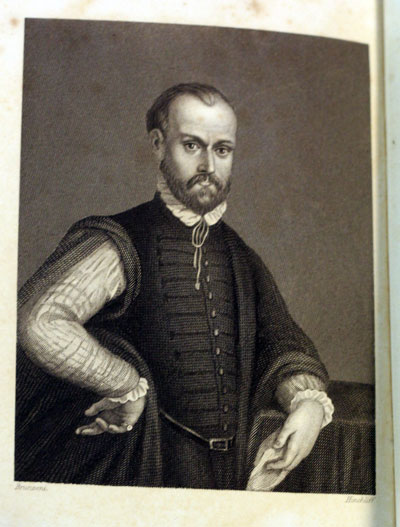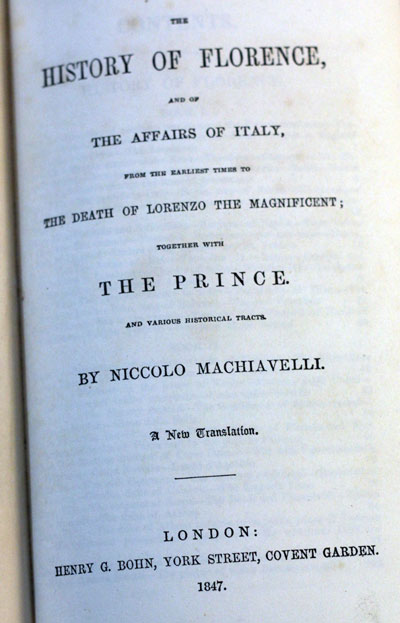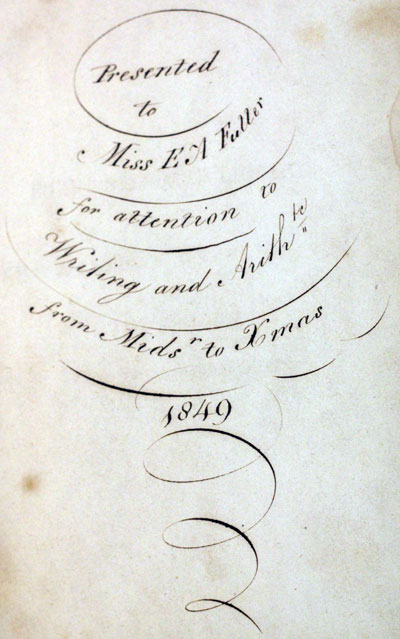About the Prince:
About The Prince at wikipedia.
Although it makes for a poor endorsement ethically, it must be said that this book has been admired by nearly every dictator of the past 400 years.
“The list of avid readers is impressive: Emperor Charles V and Catherine de Medici admired the work; Oliver Cromwell procured a manuscript copy, and adapted its principles to the Commonwealth government in England; Henry III and Henry IV of France were carrying copies when they were murdered; it helped Frederick the Great to shape Prussian policy; Louis XIV used the book as his “favorite nightcap”; an annotated copy was found in Napoleon Bonaparte’s coach at Waterloo; Napoleon III’s ideas on government were chiefly derived from it; and Bismarck was a devoted disciple. More recently, Adolf Hitler, according to his own word, kept The Prince by his bedside, where it served as a constant source of inspiration; and Benito Mussolini stated, “I believe Machiavelli’s Prince to be the statesman’s supreme guide. His doctrine is alive today because in the course of four hundred years no deep changes have occurred in the minds of men or in the actions of nations.”
About The History of Florence:
Florentine Histories is a historical account by Italian Renaissance political philosopher and writer Niccolò Machiavelli, first published posthumously in 1532.
The first of the eight books is a general picture of the history of Europe from the fall of the Western Roman Empire to 1215; the second book actually begins to discuss the history of Florence, with the narration of the feud between Buondelmenti/Donati and Uberti/Amidei, that according to tradition corroborated by Dante would unchain the conflict between Guelphs and Ghibellines in the city. The books II, III, and IV narrate the history before the Medici rise, while the last four speak of the fight for power that ended with the Medicean lordship. The eighth book closes with the death of Lorenzo il Magnifico, on 1492, with the end of the fragile peace that Lorenzo’s politics of balance had carried. The author made an effort to show under an altogether favorable light personalities like Cosimo il Vecchio and Lorenzo il Magnifico.





